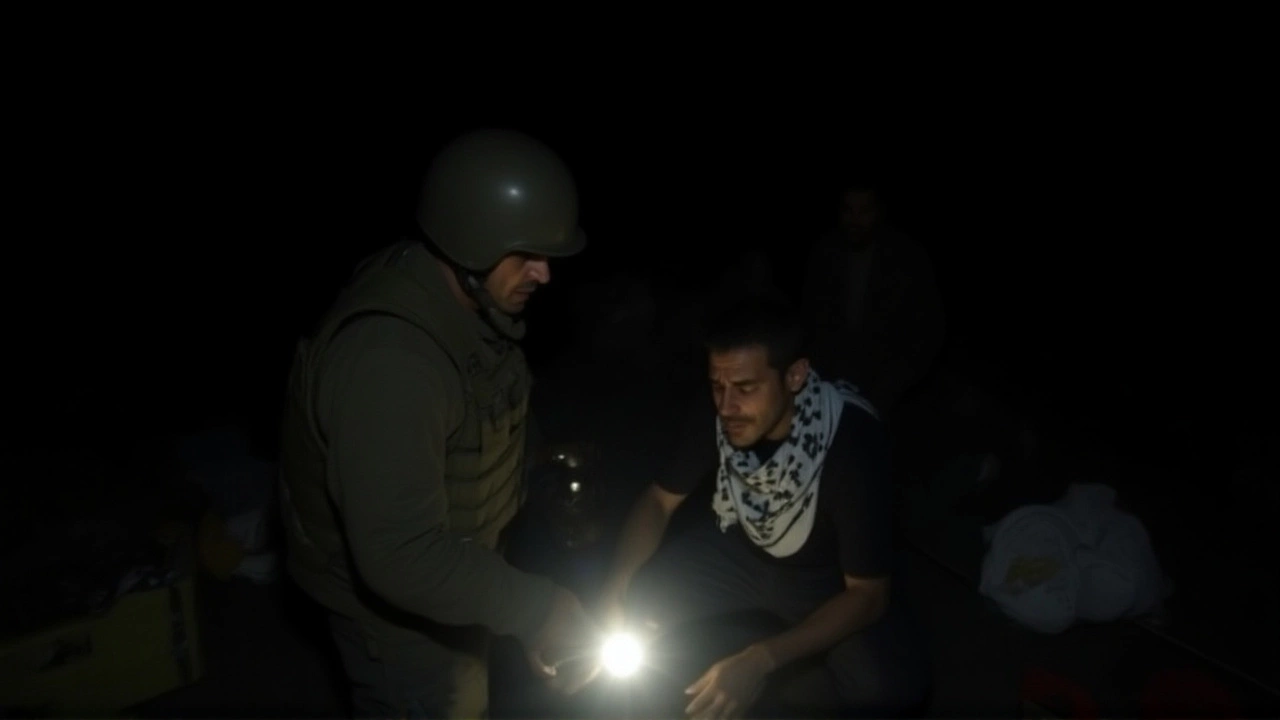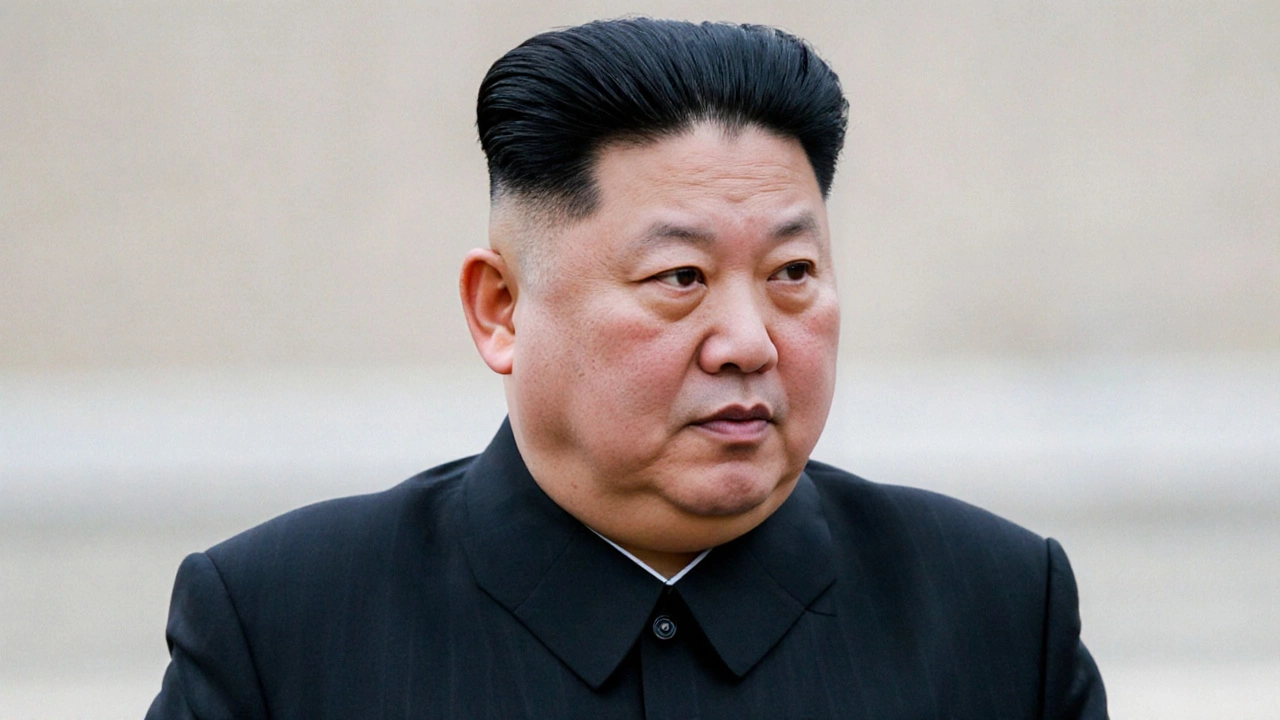When a post claimed that North Korea had threatened a nuclear threat against Tel Aviv if Israel harmed Greta Thunberg, a Swedish climate activist, the internet went into a frenzy. The allegation, which spread like wildfire across X (formerly Twitter) in the week of March 12 2024, suggested the hermit kingdom would dispatch troops from Ukraine to launch the strike while Thunberg was aboard the Gaza Sumud Flotilla.
Fast‑forward to March 20, 2024, and the Arab fact‑checking platform Misbar released a detailed investigation that labeled the story as pure satire. No official North Korean source, nor any reputable news outlet, ever confirmed such a threat. The claim, it turned out, originated from a self‑described communist media project called Pamphlets, which later admitted the piece was meant to lampoon what it calls "Western mainstream media lies about North Korea."
Background: How the claim took off
On March 12, a user on X shared a screenshot that purported to be a statement from Kim Jong Un—spelled satirically as "Kim Hung Uh"—warning that Israeli drones had "frightened Greta" and that the regime would retaliate with a nuclear blow on Tel Aviv. The post also referenced the Gaza Sumud Flotilla, an actual humanitarian convoy that has been active since late 2023, adding a veneer of plausibility.
Within hours, X's algorithm amplified the post, and its reach ballooned to an estimated 20 million users worldwide. The viral nature of the claim was bolstered by retweets from accounts that regularly share geopolitical memes, many of which lack any editorial oversight.
Fact‑check investigation by Misbar
Misbar’s editorial team began its probe on March 15, after several users flagged the story as dubious. Their methodology was straightforward: search the archives of major international news outlets, scour North Korean state media translations, and query diplomatic sources for any mention of a nuclear ultimatum tied to Greta Thunberg.
"We found no trace of any official statement, press release, or credible reporting that corroborates the alleged threat," said Lamia Al‑Hussein, senior fact‑checker at Misbar. "The claim appears to be a fabricated meme that was deliberately crafted to sow confusion about a highly sensitive geopolitical issue."
The investigation also traced the original source to Pamphlets. The platform’s "About" page describes itself as a "communist news media project" aimed at counter‑propaganda. On March 13, Pamphlets posted the story on its own website, labeling it as satire, but the disclaimer was buried deep beneath the headline, making it easy to miss.
Satire origins and subsequent content
After the initial post went viral, Pamphlets rolled out a series of follow‑up videos. One clip, released on March 16, featured a cartoonish rendering of Kim Jong Un—again misspelled as "Kim Hung Uh"—weeping over a news bulletin about Israeli drones "scaring Greta". The video ended with a caption that read: "When the world thinks you’re a villain, you just cry instead." The tone made it clear the creators were mocking the very absurdity of the claim.
These follow‑ups, while humorous to some, further muddied the waters for users who stumbled upon the content without context. The satire was lost on a global audience already primed for sensational headlines about nuclear threats.

Reactions from involved parties
Neither the North Korean government nor the Israeli Ministry of Foreign Affairs issued any statement regarding the alleged threat. The Swedish government, however, issued a brief comment on March 18, saying, "Sweden condemns any misinformation that endangers diplomatic relations or the safety of individuals, including Ms. Thunberg." The comment was not a direct rebuttal but a diplomatic nod to the growing chatter.
On the same day, Tel Aviv’s municipal Twitter account posted a tongue‑in‑cheek meme that read, "We prefer coffee over nukes," further illustrating how local officials chose humor over alarm.
Why this matters: The broader misinformation landscape
The incident underscores a persistent challenge: satire and misinformation can travel faster than fact‑checking. According to a 2023 Pew Research Center study, 62 % of adults who encounter political satire on social media admit to sharing it without verifying its authenticity.
In this case, the convergence of three sensitive topics—North Korea’s nuclear program, the Israel‑Palestine conflict, and Greta Thunberg’s climate activism—created a perfect storm for virality. Each element carries emotional weight, encouraging users to share without a second thought.

Looking ahead: How platforms and fact‑checkers can respond
Social‑media giants like X have begun experimenting with "contextual labels" that appear next to potentially misleading posts. As of early 2024, X rolls out a pilot that flags content tagged as "satire" when a credible third‑party source, such as Misbar, provides a verification link.
Fact‑checking organizations, meanwhile, are investing in faster response times. Misbar’s three‑day turnaround on this claim is among the quickest in the region, illustrating that rapid debunking can curb the spread before it becomes entrenched.
For everyday users, the takeaway is simple: when a headline sounds too outrageous—especially when it mixes nuclear rhetoric with celebrity activism—pause, check the source, and look for a disclaimer. In the age of meme‑driven news, a little skepticism goes a long way.
Key Facts
- Claim originated on X on March 12, 2024.
- Original source: Pamphlets, a self‑described communist satire outlet.
- Reach estimated at 20 million users before fact‑check.
- Misbar published its debunk on March 20, 2024.
- No official statements from North Korea, Israel, or Sweden confirmed the alleged threat.
Frequently Asked Questions
What exactly did the viral claim say?
The post alleged that North Korea threatened to launch a nuclear strike on Tel Aviv if Israel harmed Greta Thunberg while she traveled on the Gaza Sumud Flotilla, even claiming the attack would be carried out by troops from Ukraine.
Who created the original story?
The narrative first appeared on the website of Pamphlets, a project that describes itself as a communist news media outlet. It later posted the claim on X, where it went viral.
Did any government officially respond?
No official North Korean, Israeli, or Swedish statements confirmed the alleged threat. Sweden issued a brief comment condemning misinformation, while Tel Aviv’s municipal account responded with a light‑hearted meme.
How did Misbar verify the claim was satire?
Misbar’s team searched major news databases, North Korean state media translations, and diplomatic sources, finding no corroborating reports. They also traced the story back to Pamphlets, which later clarified the piece was meant as satire.
What can readers do to avoid being misled by similar posts?
Check the original source, look for any disclaimer indicating satire, and consult reputable fact‑checking sites like Misbar. When a headline mixes nuclear threats with celebrity names, treat it with extra caution.
